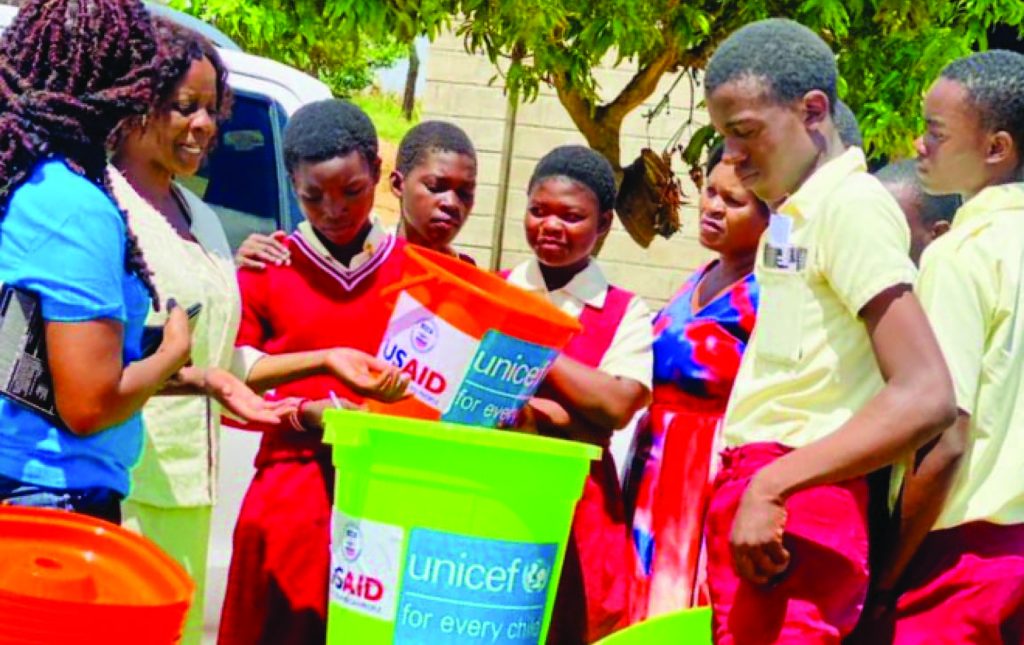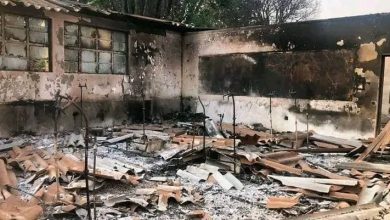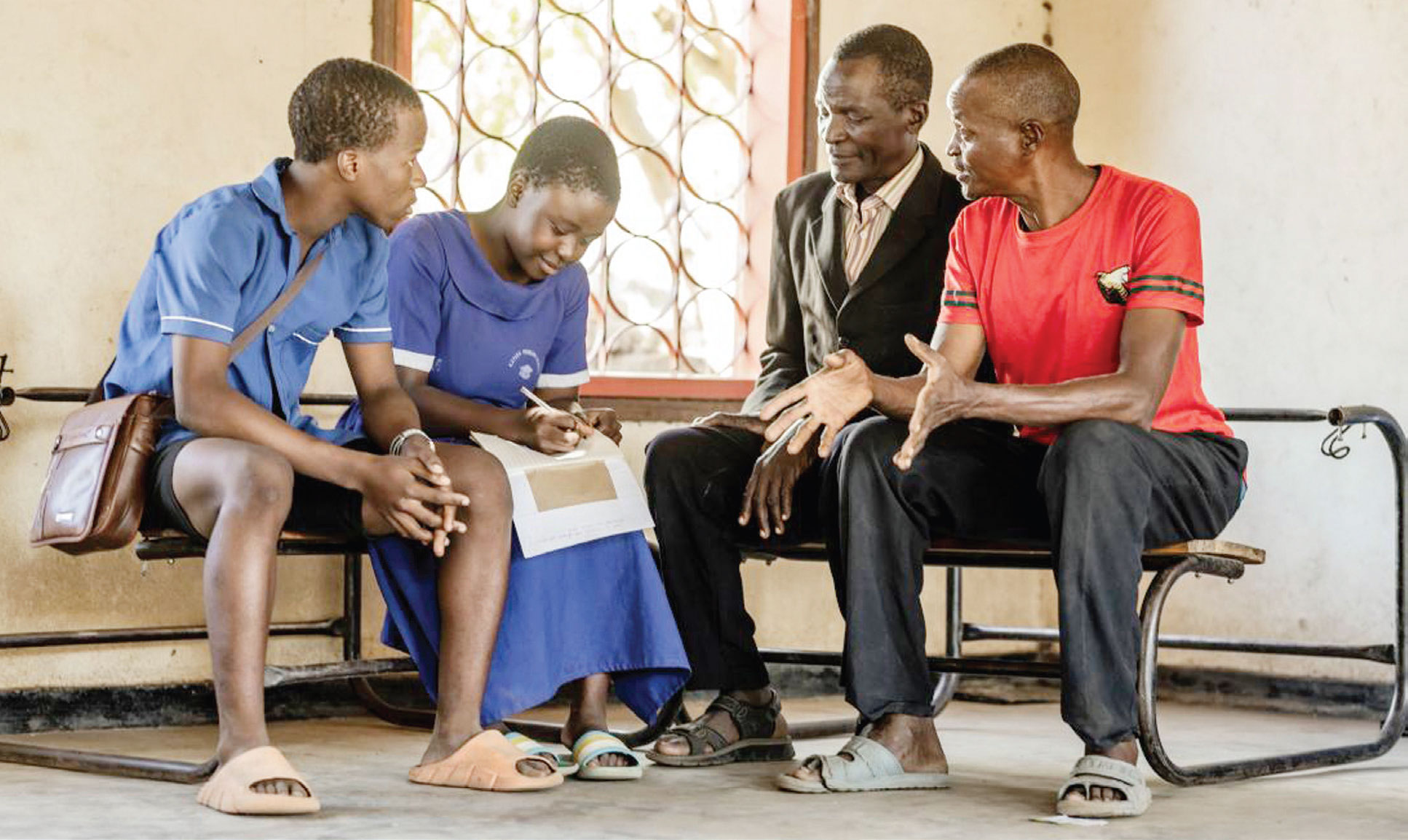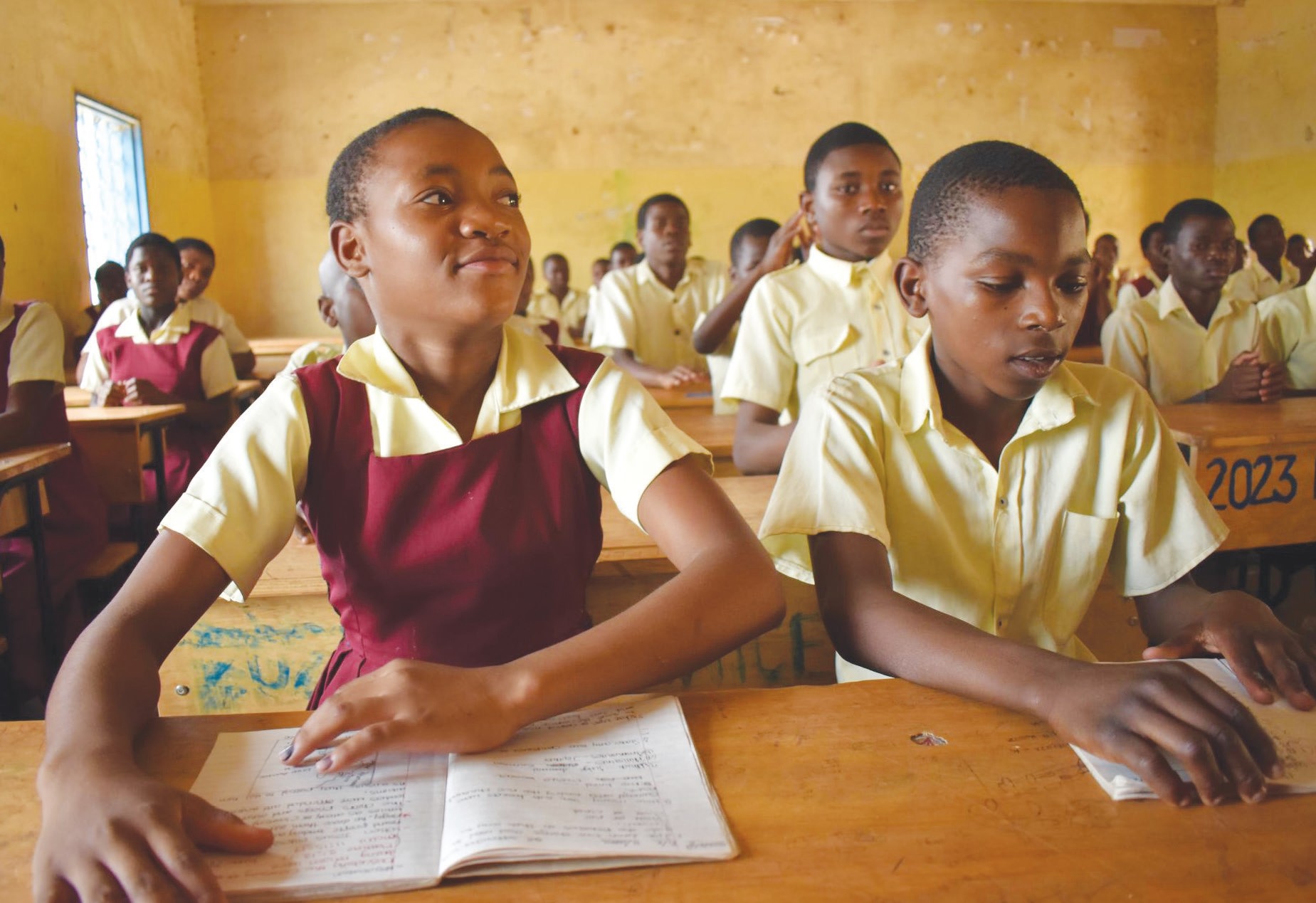Sanitation for disrupted schools
Unicef delivers water, sanitation and hygiene supplies as schools reopen after Cyclone Freddy, writes freelance journalist JACK MCBRAMS
When Cyclone Freddy hit Ndirande Township in the heart of Blantyre, Malabada Primary School was soon swamped with villagers seeking shelter from the storm that had destroyed their houses and rendered them destitute in the blink of an eye.

Ida Kachale, the school’s headteacher, recalls that when the disaster happened, and houses started falling along the river, a horde of community members rushed to the school for shelter.
“I think in their minds, this was a safe place, as it stood on higher ground,” she said.
On the first day, as the houses tumbled in the raging storm, 69 people sought shelter at the school. In a few days, the number had swelled to 615 people.
“Of these 615 people, 108 were students from the school. We provided shelter to the displaced, but at the same time, we were also depriving these students of their learning,” she said.
As a result of the school turning into an emergency evacuation camp, Malabada Primary School, like many affected schools in the Southern Region, was forced to close to provide shelter.
“These were unforeseeable circumstances, so we have to put the national interest above the school’s interest,” Kachale said.
“I’m not trying to blame anyone, but this was an emergency, and the people came here without anything, just the clothes on their backs. As a result, they had to rely on the school property to get by with life. For instance, they used the plastic pales we received for the cholera response and the school toilets for bathing because there are no bathrooms here,” she said.
The school received pales, soap, and buckets from Unicef with funding from the United States Agency for International Development (USAid).
“The support we have received is timely because the evacuees left the camp on Sunday. We reopened the school the next day, so we had no time to mobilise resources to replace the buckets and pales that had been damaged or lost,” she said.
Kachale explained that as one of the schools that had been affected by the cholera outbreak, it is essential that they maintain high standards of hygiene to prevent a relapse of an outbreak among the 2 083 learners at the school.
Alinafe Mkwapatira, 14-year-old Standard 8 learner, was caught between a rock and a hard place when she and her family of eight were forced to flee their tumbling home to seek shelter at her school.
“When our house was washed away with the floods, we came here to the camp, but now that schools have opened, we have been relocated to a new camp close by,” she said.
But with all her school books gone, Alinafe now has to lean on the assistance of fellow classmates to copy notes and catch up with lost time as the final examinations approach.
“It’s going to be tough as I have to start from scratch, but this is what life has given us, so we must face the challenges. I have no choice but to work a little harder than I normally do,” she said.
United Nations Children’s Fund (Unicef) Water Sanitation and Hygiene Officer, Violet Tembo, explains that with funding from USAid Bureau for Humanitarian Assistance, Unicef has been distributing education and hygiene supplies to schools affected by Cyclone Freddy to prevent the spread of cholera.
She says that Unicef is also looking to distribute materials to 250 affected schools in Blantyre, Phalombe Mulanje, Chikwawa, Nsanje, Machinga, Thyolo, and Chiradzulu.
“In some schools, we are even putting up tents where the classrooms have been destroyed,” she adds.





